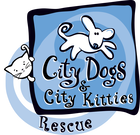What is parvo?
Parvovirus is a viral disease of dogs. It affects puppies much more frequently than it affects adult dogs — mostly because adult dogs have a lifetime of vaccinations. The virus likes to grow in rapidly dividing cells. Because the intestinal lining has the biggest concentration of rapidly dividing cells in a puppy’s body, the virus attacks and kills these cells, causing diarrhea (often bloody), depression and suppression of white blood cells. It also prevents the absorption of nutrients. In very young puppies it can infect the heart muscle and lead to sudden death.
How do I know my dog has it?
Parvovirus is most easily diagnosed when a dog or pup has diarrhea, vomiting and extreme lethargy. It will usually have a distinct smell of metal or blood and is sometimes yellow in color.
How is it spread?
Canine parvovirus is carried by dogs. Unfortunately, it is common in many rural shelters—especially those that do not vaccinate. Adult dogs may be infected carriers without showing any clinical signs. It can last a long time in the environment, perhaps as long as nine months or longer. Most disinfectants, including professional carpet cleaning materials, cannot kill the virus; however, chlorine bleach – diluted one ounce per quart of water – is the most effective and inexpensive agent that works. Generally, it takes anywhere from 3 to 10 days from the time of exposure for dogs and puppies to start showing symptoms and to test positive for parvo.
Parvo is highly contagious to unprotected dogs, such as puppies not yet fully vaccinated and dogs with weak immune systems. For this reason, puppies that do not have all their vaccines should be confined to their homes and yards and homes/yards of others who have dogs they know are fully vaccinated and healthy. A dog can contract parvo by simply walking down the street and sniffing or stepping in the feces of another dog who had the virus. It can also be brought home to your dog on shoes, hands and even car tires.
Fully-vaccinated dogs with strong immune systems are not usually susceptible to this virus. It cannot be transmitted to people or cats.
How is it treated?
Treatment of parvo must happen immediately. Dogs with parvo become quickly dehydrated and can develop secondary infections. Usually, injectable antibiotics and either IV or subcutaneous fluids are the best and only options. We recommend requesting that your vet treat with Tamiflu. Although this is an off-label use, we have seen much success. However, this treatment is largely supportive because it keeps the dog hydrated and helps support his or her system while it fights off infection. Treatment can cost thousands of dollars, and there is no cure.
How do I prevent parvo?
The surest way to avoid parvo infection in your dog is to adhere to the recommended vaccination schedule, which begins when puppies are 6 to 8 weeks of age. Puppies should not be allowed to socialize with other dogs or be in frequent areas where other dogs have been until two weeks after they have had their last vaccination. If you have a dog or puppy who shows signs, go directly to the vet.
What do I do if I have parvo in the house?
- Keep the infected dog isolated from all other dogs for at least one month after full recovery.
- Clean up all the dog’s stools in your yard.
- Use a 1:30 ratio of chlorine bleach and water to clean food and water bowls (4 oz. in one gallon of water). Wash any bedding the dog has been in contact with in this same bleach solution and hot water. Disinfect any other areas in which the dog has been, such linoleum, concrete kennels, crates, etc.
- Get boosters for your adult dogs ASAP.
- Be sure to feed your dog a bland diet – usually steamed rice, chicken and chicken broth – until he/she is fully recovered. When switching back to the normal diet, mix the regular food with the bland food for 2 to 3 days to help your pet gradually adjust to the change.
What do I do if my dog has recovered from parvo?
Once a dog has recovered from parvo, he/she can still shed virus for six weeks after recovery. During this period, exposure to other dogs should be minimized as much as is possible. The dog’s stool should be cleaned up immediately and completely, since this is how the virus spreads from one dog to another. Under no circumstances should the parvo survivor be in a dog park or daycare environment during the six weeks post recovery. Puppies are the most susceptible to the virus if exposed.
